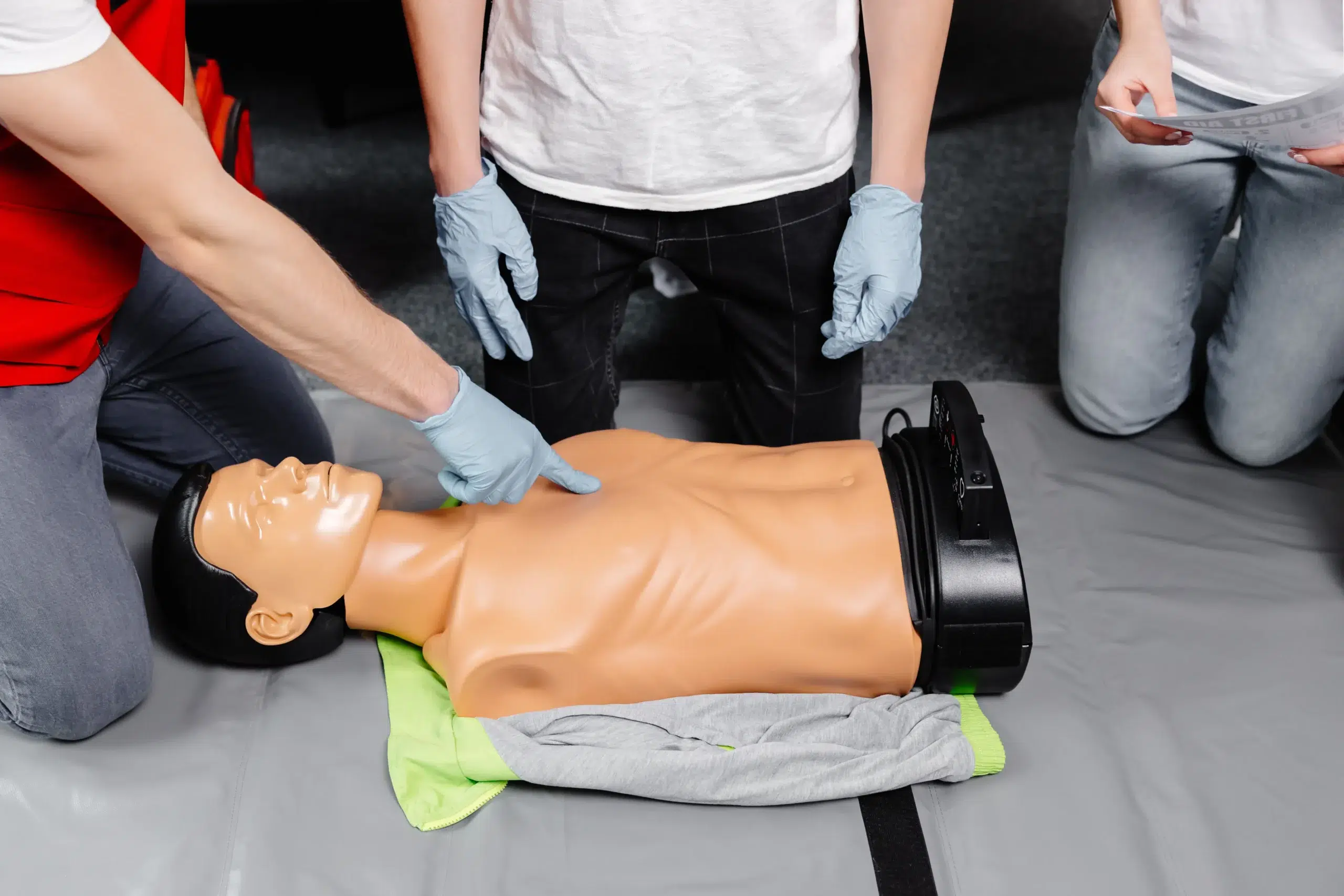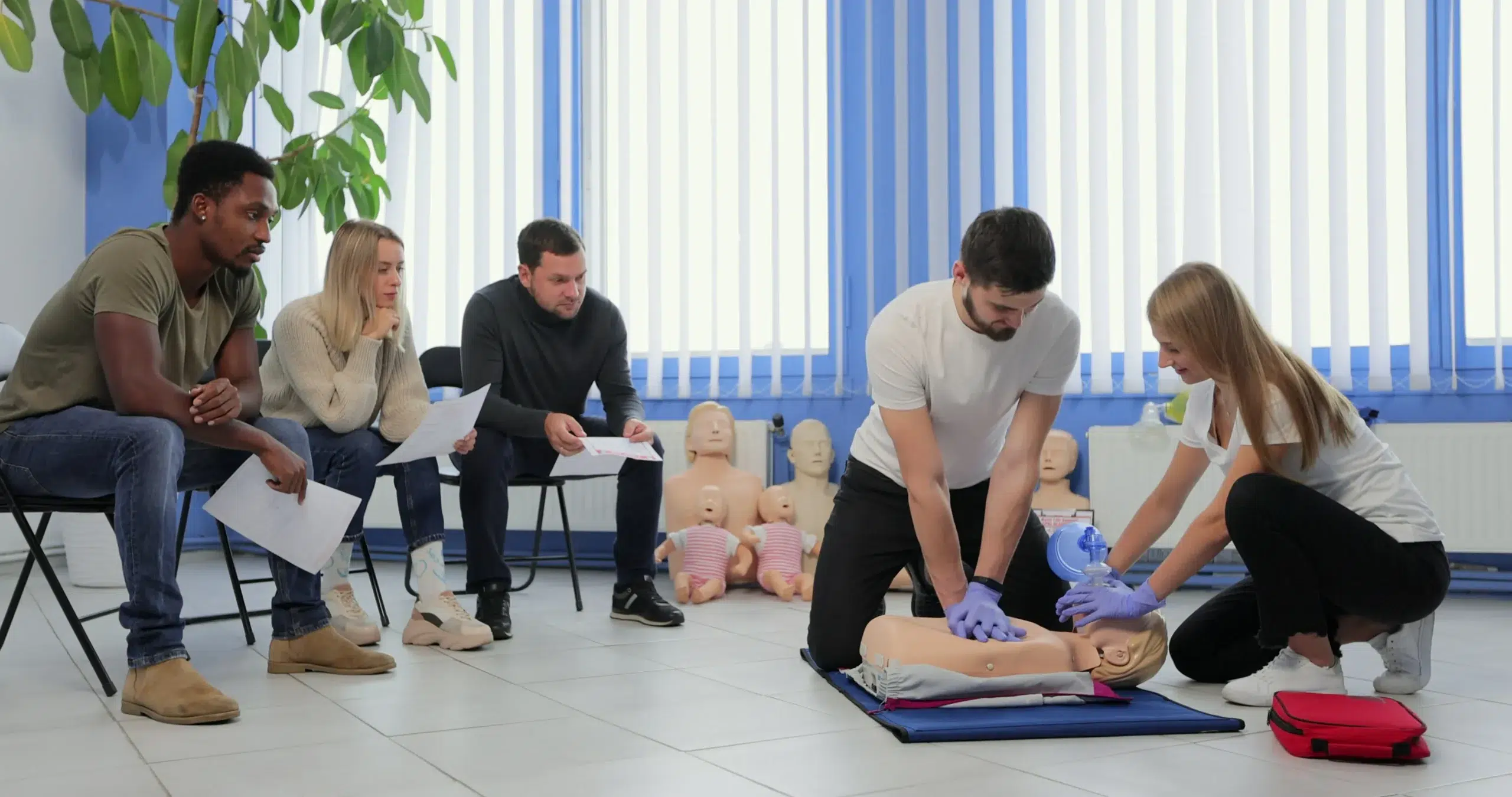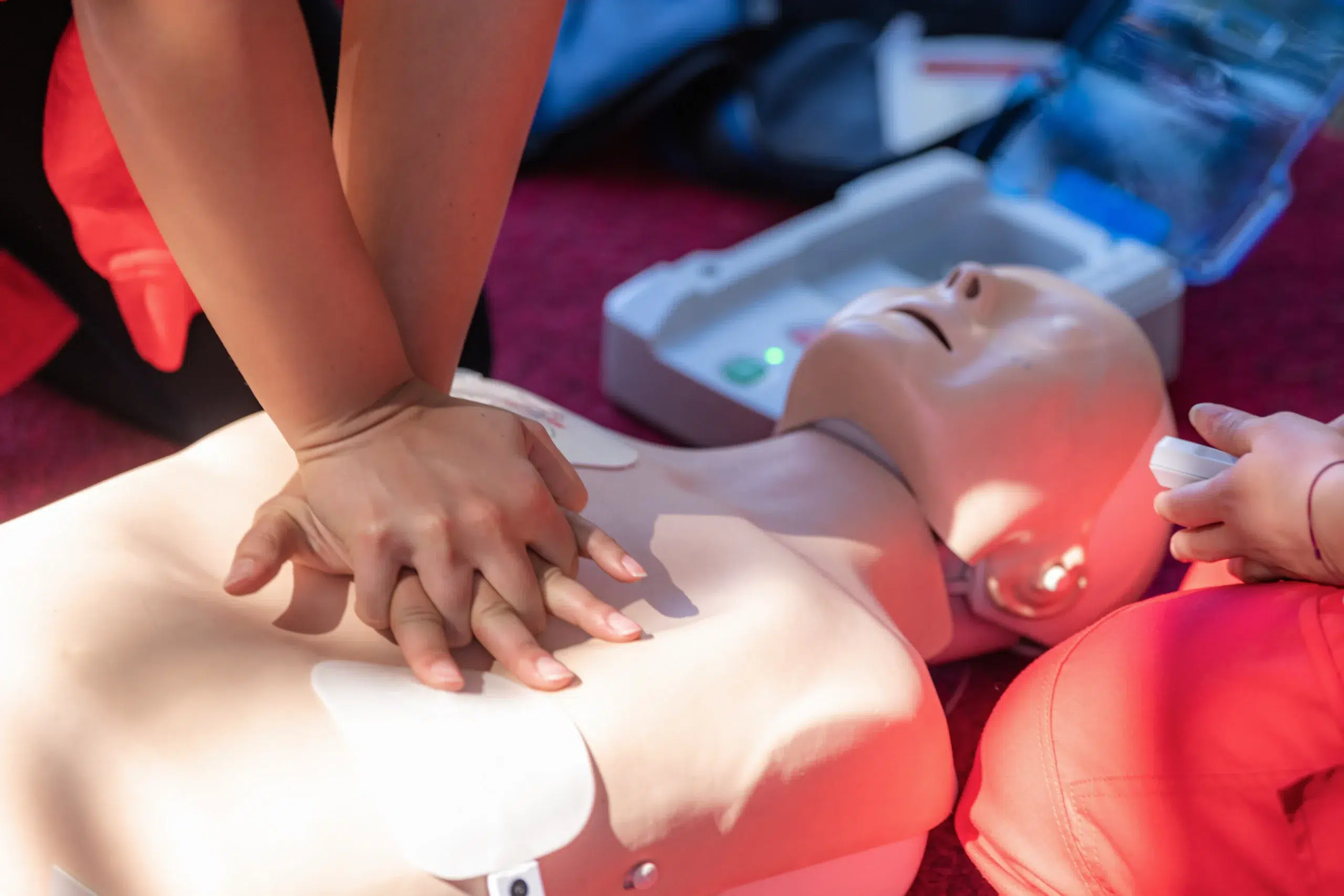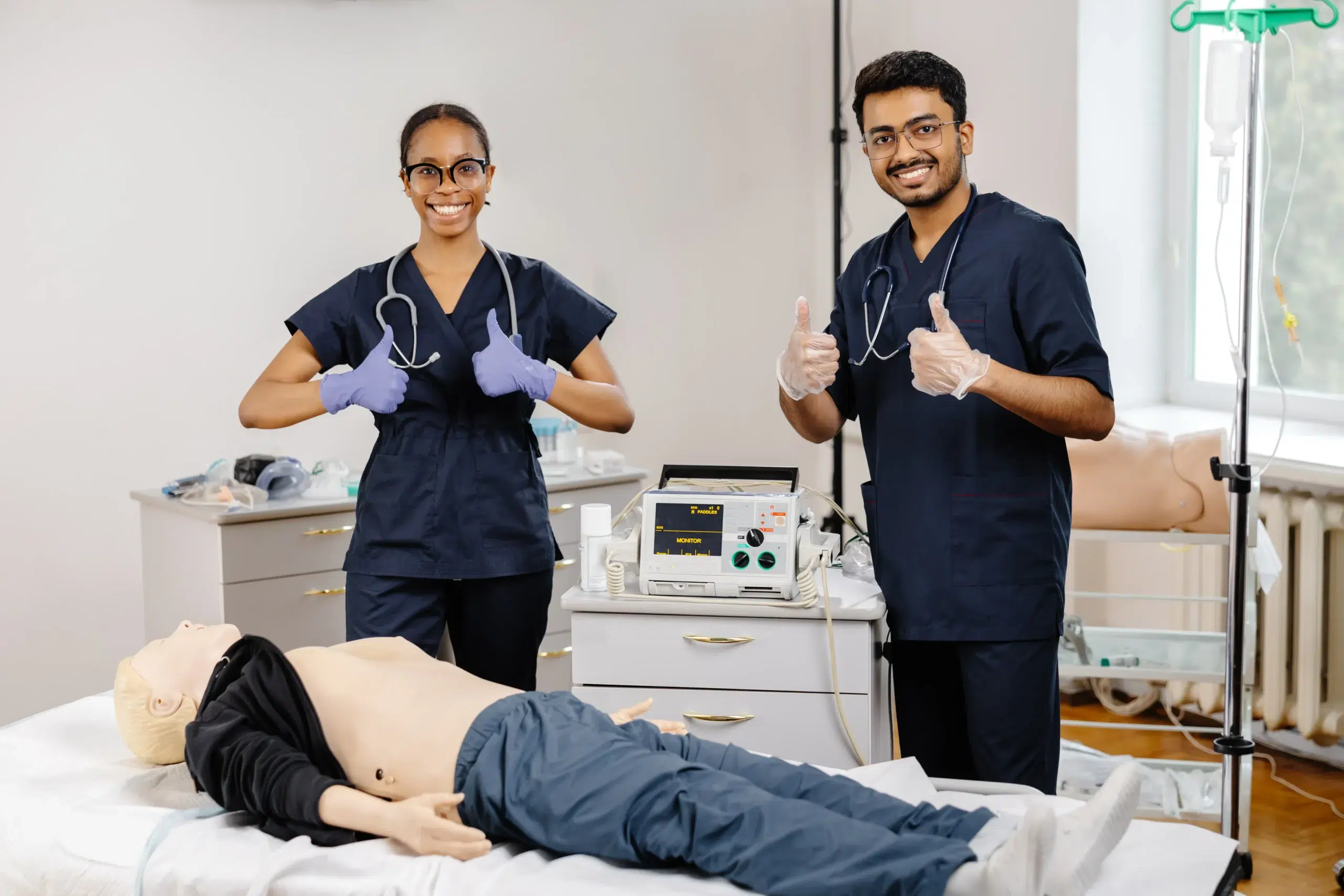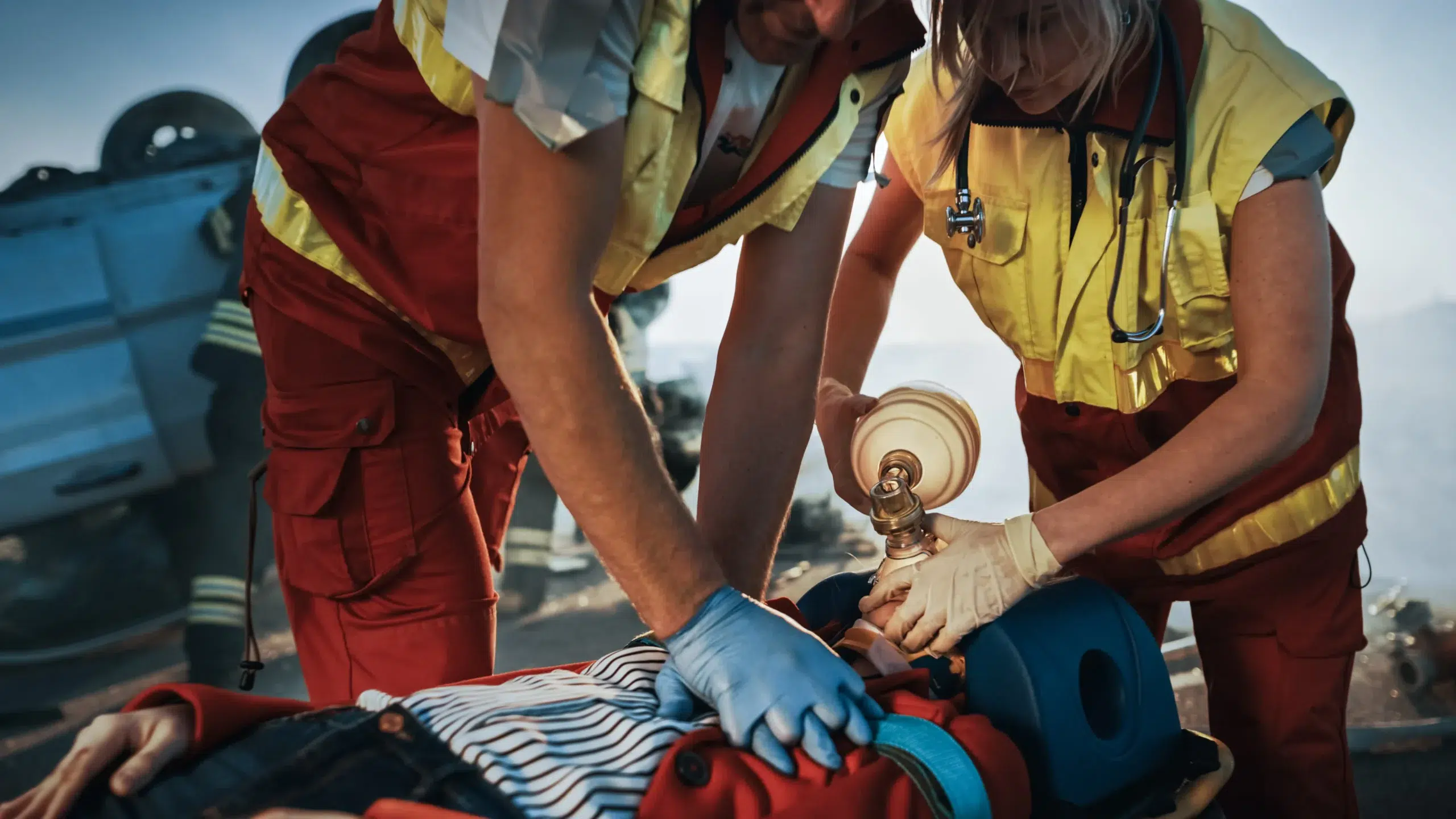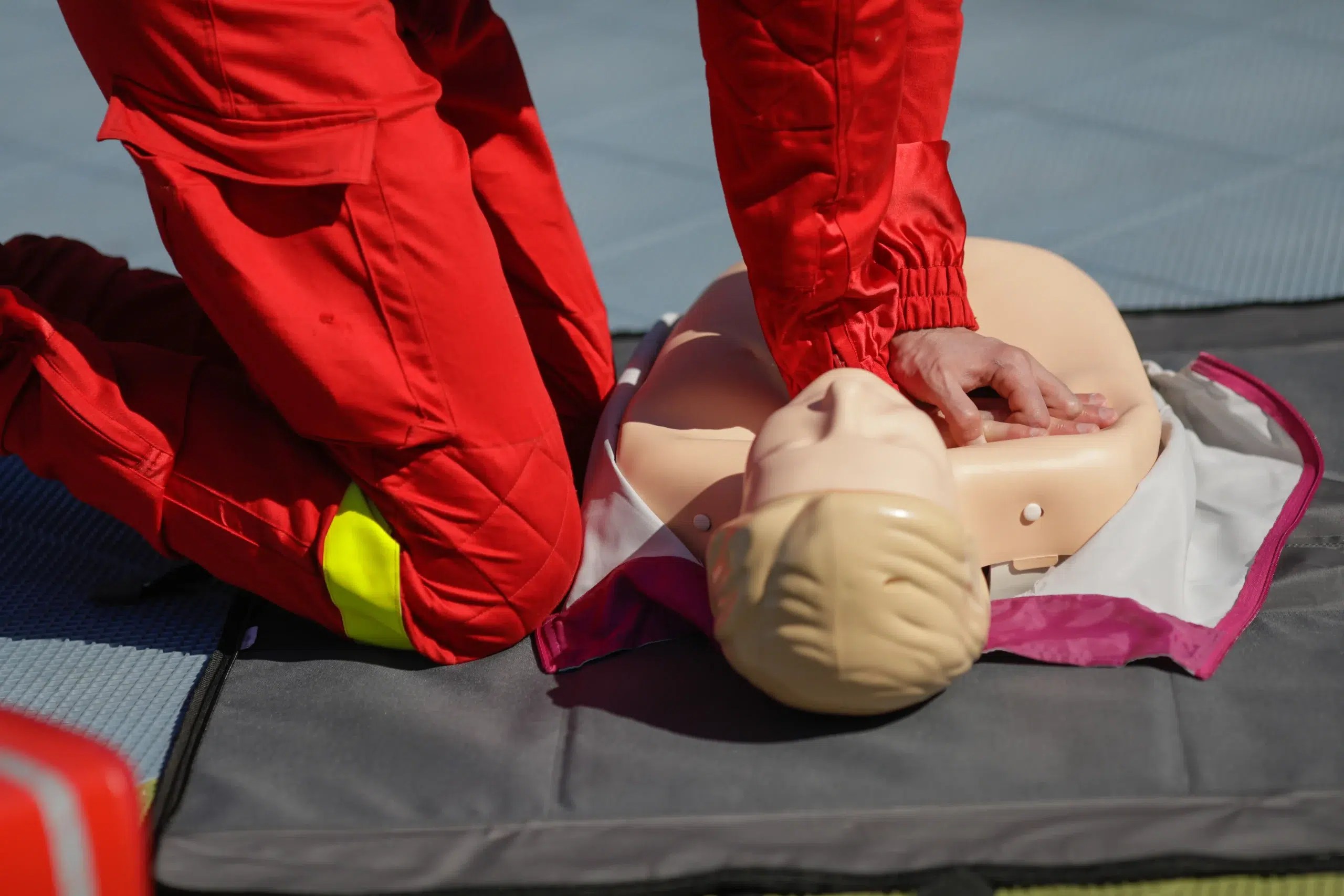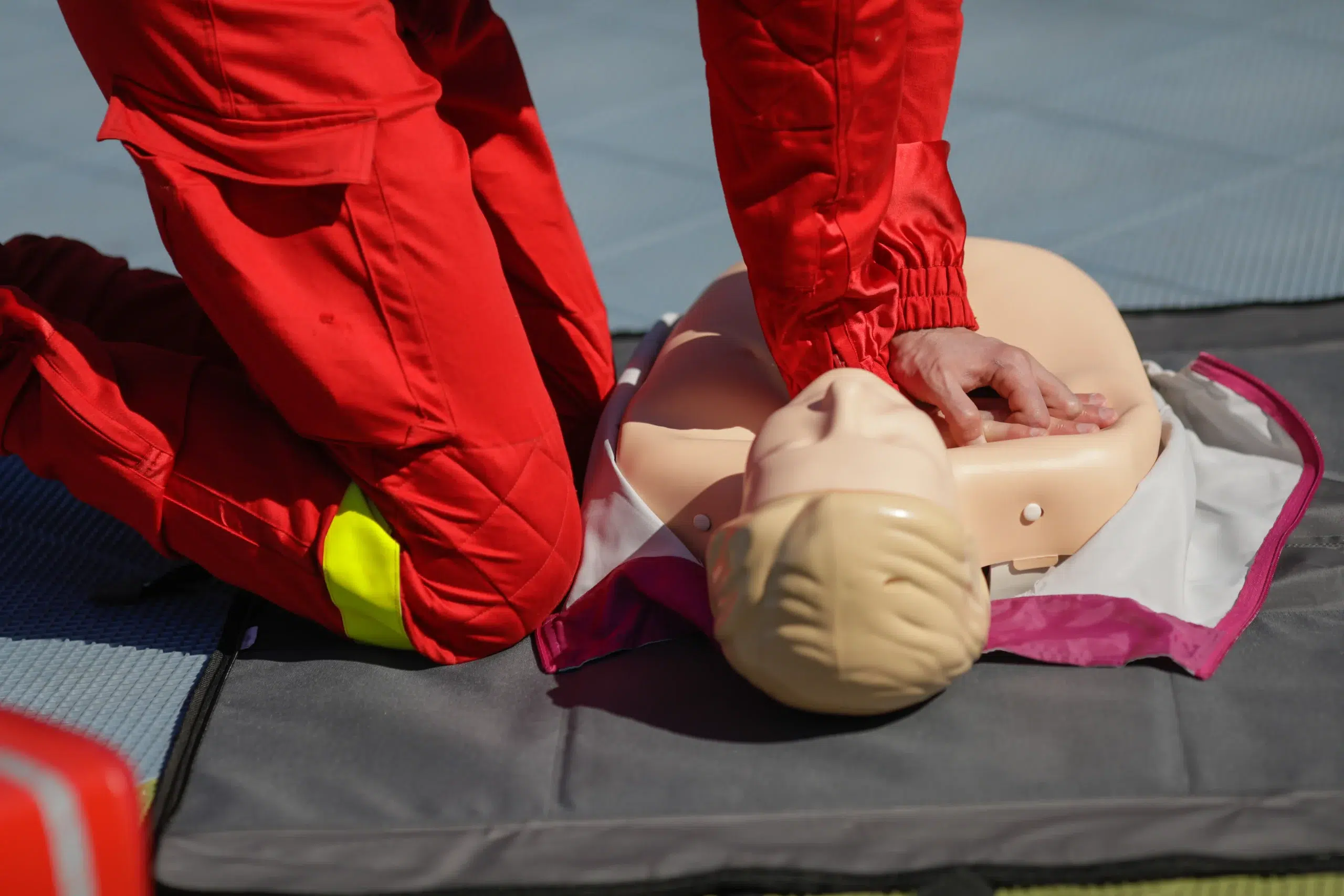Working in healthcare, you know that seconds can matter in a crisis. When a patient’s life hangs in the balance, advanced skills and decisive action are crucial. That’s where Advanced Cardiac Life Support (ACLS) training comes in. This certification equips you with the tools and knowledge to handle critical cardiovascular emergencies effectively. If you’re a healthcare provider in San Jose, finding quality advanced cardiac life support in San Jose is easier than you think. This guide breaks down everything you need to know about ACLS certification, from what the course entails to where to find the best training programs in the area. We’ll also explore the benefits of ACLS certification and how it can positively impact your career and, most importantly, patient outcomes.
Key Takeaways
- ACLS is more than just advanced CPR: It involves a broader range of skills, including airway management, ECG interpretation, and medication administration, crucial for managing complex cardiac emergencies.
- Find an ACLS course that fits your needs: Consider factors like AHA accreditation, instructor experience, hands-on training opportunities, scheduling flexibility, and cost when selecting a provider.
- Stay current with your ACLS certification: Recertify every two years to maintain your credentials and ensure you’re up-to-date with the latest guidelines and best practices in emergency cardiac care. Explore convenient recertification options like the RQI program.
What is Advanced Cardiac Life Support (ACLS)?
ACLS Definition
ACLS (Advanced Cardiac Life Support) is a set of clinical guidelines and protocols for the urgent treatment of cardiac arrest and other life-threatening medical emergencies. It equips healthcare professionals with advanced skills like airway management, medication administration, and effective team communication. Think of it as a comprehensive toolkit and roadmap for handling high-pressure medical situations.
Why is ACLS Certification Important?
ACLS certification is vital for healthcare professionals who encounter serious heart problems in adults. It goes beyond basic life support techniques like CPR to encompass advanced interventions, such as administering medications through IVs and managing complex heart rhythms. These skills can significantly improve patient outcomes during emergencies. Holding an ACLS certification demonstrates a commitment to providing high-quality patient care and staying current with advancements in emergency cardiac care. Our ACLS courses in San Jose can help you gain these vital skills.
Common ACLS Training Misconceptions
One common misconception is that ACLS is simply “advanced CPR.” While CPR is a foundational element within ACLS, the certification covers a much broader scope. It includes advanced airway management techniques, such as intubation, and the administration of critical medications. Another myth is that ACLS training is only for doctors. In reality, a wide range of healthcare professionals benefit from ACLS training, including nurses, paramedics, respiratory therapists, and others working in critical care settings. Even dentists may find ACLS training valuable, as they may encounter medical emergencies in their practice. If you’re a healthcare provider involved in emergency care, ACLS certification is likely relevant for you.
Top ACLS Certification Providers in San Jose
Finding the right ACLS certification course can feel overwhelming, so we’ve compiled a list of reputable providers in San Jose to help you start your search.
Safety Training Seminars
Safety Training Seminars offers a variety of American Heart Association (AHA) courses, including ACLS certification, in Downtown San Jose. Their programs focus on equipping healthcare professionals with practical skills for emergency situations. They also offer a low-price guarantee, ensuring you receive quality training at a competitive price.
CPR Training Center
The CPR Training Center in San Jose provides AHA-certified courses in ACLS, BLS, and more. They prioritize convenience with flexible scheduling and a low-price guarantee, making certification more accessible for busy healthcare providers.
Heart Start CPR
Heart Start CPR offers both online and blended learning options for ACLS certification. Their HeartCode ACLS course allows participants to complete the online portion at their own pace before attending an in-person skills session. This blended learning approach is a good option for professionals with demanding schedules.
American Red Cross
The American Red Cross provides ALS certification classes designed for healthcare providers and first responders. Building upon foundational BLS knowledge, their courses use a blended learning format, combining online coursework with hands-on training.
Local Hospitals and Medical Centers
Many hospitals and medical centers in San Jose offer ACLS training programs for their staff and the public. Check with hospitals in your area, such as Good Samaritan Hospital, Regional Medical Center of San Jose, or O’Connor Hospital, to explore available programs. These programs help healthcare professionals stay current with the latest advancements in cardiac emergency care.
ACLS Course Structure and Costs
Understanding the structure and costs associated with ACLS courses can help you choose the best fit for your schedule and budget. Let’s break down the different learning formats, what the course covers, typical pricing, and the convenience of same-day certification.
Traditional vs. Blended Learning Formats
ACLS courses typically offer two main learning formats: traditional and blended. The traditional format involves in-person classroom learning and hands-on skills practice. This allows for direct interaction with instructors and real-time feedback. Blended learning combines online modules with an in-person skills session. This offers flexibility for those with busy schedules, allowing you to complete the cognitive portion at your own pace before demonstrating your skills in person. Safety Training Seminars offers both traditional and blended learning options, allowing you to choose the learning experience that works best for you.
Course Duration and Content
ACLS courses are comprehensive and cover a range of essential life support skills. You can expect to learn advanced airway management techniques, ECG interpretation, and medication administration. The course also emphasizes effective team communication and the recognition and management of cardiac and respiratory arrest. The in-person portion, including the hands-on skills session, typically takes around six hours. This focused approach ensures you receive thorough training and can confidently apply your new skills.
Pricing, Discounts, and Promotions
The cost of ACLS courses can vary, but you’ll find competitive pricing at Safety Training Seminars, often with a low-price guarantee. Check their website for current pricing and any available discounts. Discounts are sometimes offered for group registrations, so if you’re training with colleagues, it’s worth inquiring about group rates. You might also find promotions through partners like Groupon, offering further savings on CPR and first-aid certifications. Be sure to explore all options to find the best value.
Same-Day Certification
One of the advantages of taking an ACLS course through a provider like Safety Training Seminars is the availability of same-day certification. Upon successful completion of the course, including the written exam and skills testing, you’ll receive your ACLS certification, valid for two years. This eliminates any waiting period and allows you to immediately apply your new credentials.
Prerequisites and Target Audience
Before signing up for an ACLS course, it’s helpful to understand the prerequisites and if the training aligns with your career goals. This section clarifies who should pursue ACLS certification and what to expect.
Required Certifications and Skills
ACLS certification builds upon the foundational skills taught in Basic Life Support (BLS). Therefore, a current BLS certification is typically required before starting ACLS training. Providers like Safety Training Seminars offer BLS certification courses if you need this prerequisite. Check with your chosen training center to confirm their specific requirements. A solid understanding of basic medical terminology and practices is also helpful for grasping the advanced concepts in ACLS.
Who Should Take ACLS Training?
ACLS certification is primarily for healthcare professionals responsible for responding to cardiopulmonary emergencies. This includes physicians, nurses, paramedics, respiratory therapists, pharmacists, and other medical personnel working in emergency rooms, intensive care units, and other critical care settings. Even professionals like dentists, who may encounter medical emergencies in their practice, can benefit from ACLS training. If your role involves potential involvement in a cardiac arrest or other life-threatening cardiovascular event, ACLS certification is highly relevant.
Expected Skill Level
ACLS training delves into advanced life-saving techniques beyond basic CPR. BLS teaches fundamental life support skills applicable to almost anyone, while ACLS focuses on complex algorithms, pharmacology, and team dynamics in emergency situations. Participants should be prepared to learn and apply critical thinking skills in a fast-paced environment. The course involves hands-on practice, case studies, and written exams. A strong foundation in BLS and a commitment to mastering advanced cardiovascular care are key to success in an ACLS course.
Benefits of ACLS Certification
Earning your ACLS certification offers a range of benefits, from improved patient care to career advancement. Let’s explore some key advantages:
Improve Emergency Response Skills
ACLS certification significantly enhances your ability to manage cardiac emergencies. The training provides a structured approach to assessing and treating patients experiencing life-threatening cardiac events. You’ll gain proficiency in recognizing and responding to arrhythmias, administering medications, and providing post-cardiac arrest care. This translates to improved patient outcomes and increased confidence in your skills during high-pressure situations. These skills are honed through realistic simulations and hands-on practice, ensuring you’re prepared for real-world scenarios. For more information on ACLS courses in San Jose, check out Safety Training Seminars.
Advance Your Healthcare Career
In the competitive healthcare field, ACLS certification is often a prerequisite for advanced positions. Holding this certification demonstrates your commitment to providing high-quality patient care and can open doors to new opportunities. It also boosts your professional credibility among colleagues and employers. Many healthcare institutions require ACLS certification for specific roles, making it a valuable asset for career progression.
Improve Team Communication
Effective teamwork is paramount in emergency situations. ACLS training emphasizes clear communication and coordinated efforts among healthcare professionals. You’ll learn how to effectively communicate within a team, delegate tasks, and ensure everyone is working towards a common goal. This improved communication streamlines emergency response and contributes to better patient outcomes.
Critical Skills Gained
ACLS courses cover a broad spectrum of essential skills, including advanced airway management, ECG interpretation, and medication administration. You’ll develop a deep understanding of these critical skills, enabling you to make informed decisions and provide effective treatment during cardiac emergencies. This comprehensive training equips you with the tools you need to confidently manage complex situations and deliver optimal patient care.
Impact on Patient Outcomes
Ultimately, the goal of ACLS is to improve patient survival and recovery. Studies have shown a direct correlation between ACLS training and positive patient outcomes. By mastering the skills and knowledge taught in ACLS courses, you can significantly impact a patient’s chances of survival and long-term recovery. For more information on the impact of ACLS training, visit Master ACLS.
Choose the Right ACLS Course in San Jose
Finding the right ACLS course boils down to a few key factors. Let’s break down how to choose a provider and program that fits your needs.
Selecting a Provider
Look for an American Heart Association (AHA)-accredited provider like Safety Training Seminars for the most up-to-date and recognized training. Experienced instructors make a big difference, so check out testimonials or instructor bios if available. A hands-on learning environment is essential for mastering ACLS skills, so prioritize courses that offer realistic simulations and practice scenarios. Finally, consider your schedule and choose a course with dates and times that work for you. Safety Training Seminars offers a variety of course times to accommodate busy professionals.
Prepare for Success
Before your ACLS course, review basic life support (BLS) skills, as a current BLS certification is typically a prerequisite. Familiarize yourself with the latest ACLS algorithms and guidelines. This preparation will help you get the most out of your training.
Maintain Your Certification
Remember that ACLS certification is typically valid for two years. Plan to recertify before it expires to maintain your credentials and stay up-to-date with the latest advancements in emergency cardiac care. Many providers, including Safety Training Seminars, offer recertification courses to make this process smooth and efficient. You’ll receive your course.
Safety Training Seminars: Unique Offerings & Low-Price Guarantee
Safety Training Seminars offers a low-price guarantee on their courses, ensuring you get the best value for your investment. They also provide a unique RQI program, allowing healthcare professionals to renew their certifications through convenient online courses and skills sessions. This flexible option makes maintaining your credentials easier than ever. Check for potential discounts and promotions that can make your training even more affordable. Serving San Jose, Santa Clara, and Sunnyvale, their central location makes accessing high-quality ACLS training convenient and accessible.
Related Articles
- BLS ACLS PALS Training in San Jose: Your Guide – San Jose CPR Classes
- AHA ACLS Classes in San Jose, CA – San Jose CPR Classes
- American Heart Association (AHA) Courses in San Jose – San Jose CPR Classes
- BLS Certification in San Jose: A Guide for Healthcare Providers – San Jose CPR Classes
- San Jose CPR Certification: Your Complete Guide – San Jose CPR Classes
Frequently Asked Questions
What exactly does ACLS training cover beyond basic CPR?
ACLS goes beyond basic CPR to include advanced airway management (like using specialized equipment), interpreting electrocardiograms (ECGs), administering emergency medications, and working effectively as a team during crises. It’s about managing complex cardiovascular emergencies, not just the initial resuscitation.
How do I choose between a traditional ACLS course and a blended learning option?
Think about your learning style and schedule. Traditional courses offer immersive, in-person instruction, great for hands-on learners. Blended learning combines online modules with in-person skills practice, offering flexibility if you have a busy schedule.
If I’m not a doctor or nurse, do I really need ACLS certification?
While ACLS is crucial for doctors and nurses, other healthcare professionals, such as paramedics, respiratory therapists, and even dentists, can benefit. If your work involves responding to medical emergencies, especially those involving the heart, ACLS training can be invaluable.
How much does ACLS certification cost, and how long is it valid?
Costs vary, so it’s wise to compare providers. Look for competitive pricing and potential discounts. Most ACLS certifications are valid for two years. Recertification is required to stay current with the latest guidelines.
What’s the best way to prepare for an ACLS course?
Make sure your BLS certification is current, as it’s usually a prerequisite. Brushing up on basic medical terminology and getting familiar with the latest ACLS guidelines can also give you a head start.


